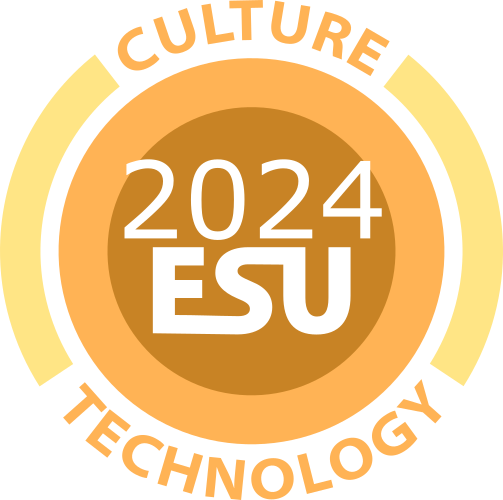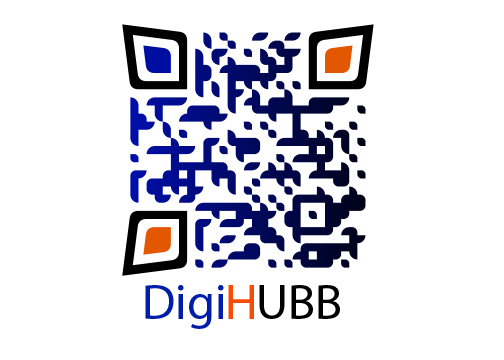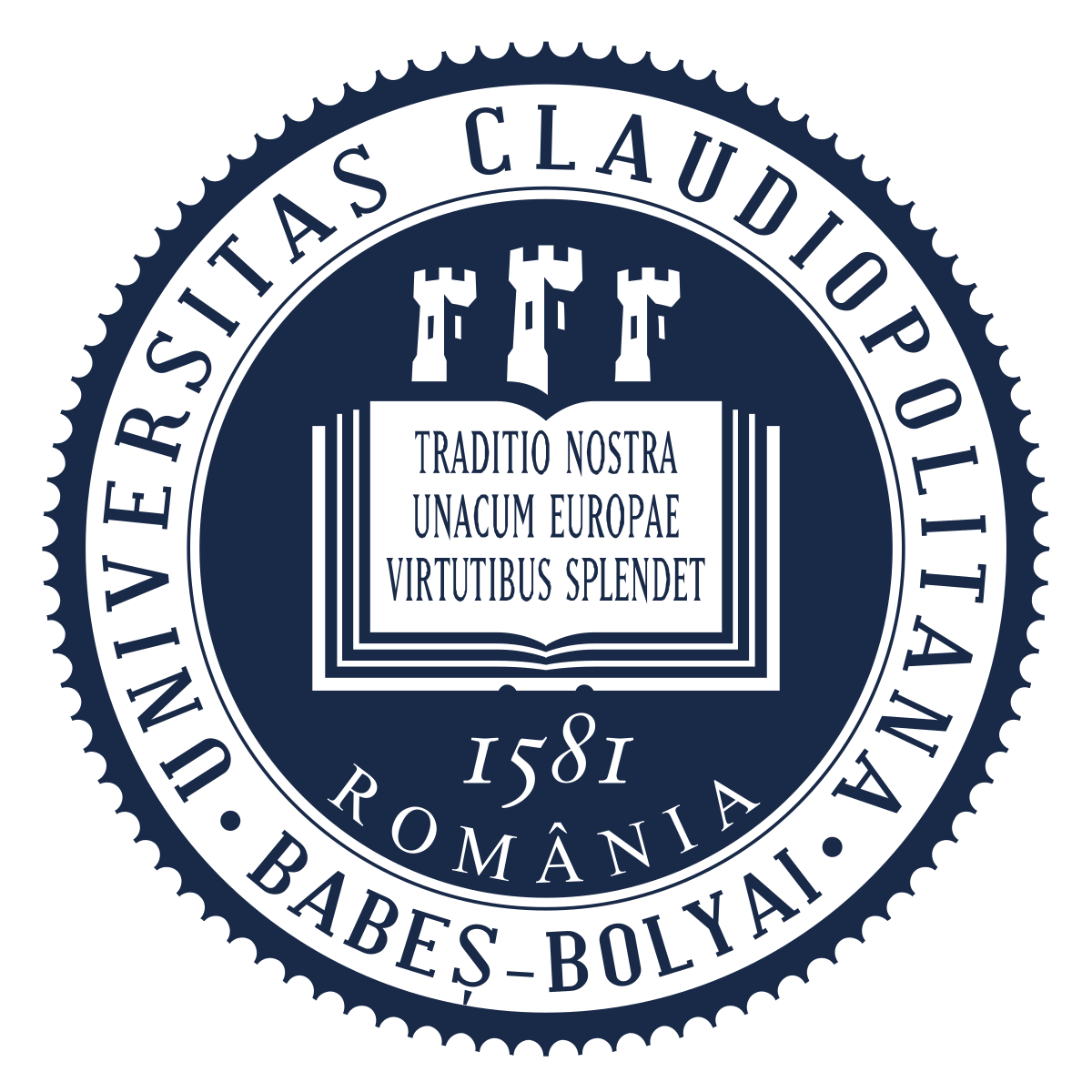DH & Multilingualism – A journey through history
Abstract: The Humanities Computing community (later Digital Humanities) was multilingual right from the outset. It occupied itself also with different, among them non-European languages, as well as with non-Latin scripts (Greek, Arabic, Persian, Hebrew, Sanskrit, Tibetan and so on). In its journals Literary & Linguistic Computing (1.1986) and Computers in the Humanities (1966-2004) you can find contributions not only in English, but also in French, German, Italian and Spanish. At its conferences and colloquia it did, however, not acknowledge its multilingual nature but behaved for a very long time as if English was its only language and thus did not even have to be named.
In my lecture I will try to give an insight into the long way the Humanities Computing and Digital Humanities Community had to go before it could accept multilinguality, the conceptual changes triggered by this acceptance as well as the energy it set free.
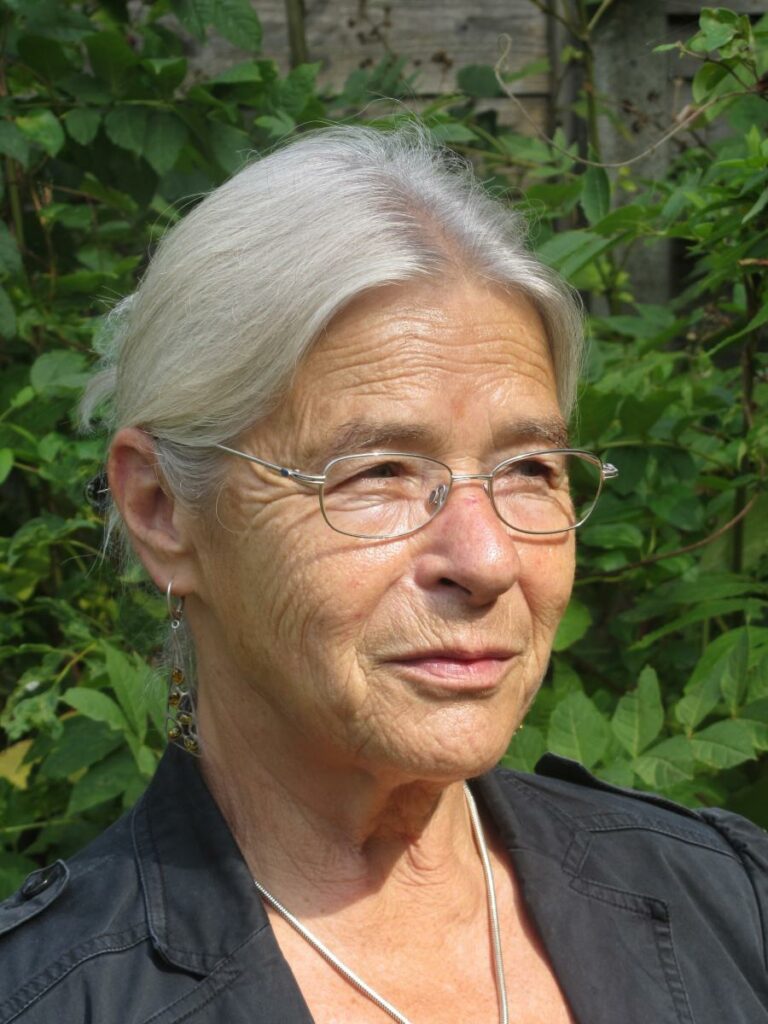
Elisabeth Burr (*1952), emeritus professor of Leipzig university, studied Romance, English and German literature and linguistics at the universities of Tübingen, Leeds and Amien from 1971 to 1980. After having spent more than 5 years in Naples (Italy) as a lecturer for the German Academic Exchange Service she took up a post in the Italian Department at Duisburg University where she taught Italian linguistics and was awarded a PhD in 1991 for her dissertation on Verb and Variety, a study of Italian newspaper language for which she had created her own marked-up corpus. After having concluded her ‘Habilitation’ (post-doctoral monograph) on Repeated Discourse and idiomatic competence based on a corpus of French, Italian and Spanish newspaper language created by herself, she held several temporary professorships of Romance linguistics (universities of Cologne, Siegen, Bremen and Marburg). In 2005 she was offered the Chair of French, Francophone and Italian linguistics at Leipzig University, which she held until her retirement in 2019. Her research, teaching and main publications, embedded over the years more and more in a Digital Humanities perspective, focus on the history of the description and conceptualisation of Romance languages, corpus linguistics & and linguistics of parole (corpus-design, -theory, -markup and -analysis included), the construction of gender in language science, in grammars and language usage, as well as multilinguality in digital, urban, scientific and scholarly spaces. She participated in the project proposal EUROSYNCH (1992-1993), represented her university in the Thematic Network ACOHUM (1998-2000), proposed the project “Humanities and Information Technologies (HUM*IT)” in the framework of the European Year of Languages 2001, organised SILFI 2000 and CLiP 2001 and was a prominent member of the Network of Excellence “Computing & Humanities in Multilingual Europe” (CHiME) (2001-2003). In 2001 the Humanities Computing Unit at Oxford University offered her a Distinguished Visiting Scholarship and in 2004, 2005, 2007, 2008 and 2010 the European Commission appointed her as an independent expert to the evaluation sessions for proposals received in response to the calls FP6-2003-Infrastructures-4, FP6-2004-Infrastructures-5, FP7-2007-Infrastructures-1, FP7-2008-Infrastructures-1, and FP7-2010-Infrastructures-1.
Apart from serving and having served on various national and European scientific consulting and evaluation bodies (DARIAH-DE, CLARIA-DE, CAHIER, MSH Dijon etc.) she constructed a fruitful collaboration with CLARIN-D, with PARTHENOS, CLARIN-EU and DARIAH-EU in the framework of the European Summer University in Digital Humanities “Culture & Technology”, which she founded and directed from 2009 until 2022 at the University of Leipzig.
Her interest in and active involvement with scholarly associations led her to accept various prominent positions over the years. From 1996 to 2002 she was, in fact, member of the Exec of the Società Internazionale di Linguistica e Filologia Italiana (SILFI) and from 1998 to 2000 President of the same association. From 1997 to 1999 she held the position of 2nd vice-president of the Deutscher Romanistenverband (DRV) and from 2000 to 2014 she was member of the Scientific Board of the Gesellschaft für Angewandte Linguistik (GAL), directed its section Computerlinguistik from 2000 to 2002 and its section Soziolinguistik from 2002 to 2014 and hosted its 40th Conference GAL 2010 “SprachRäume” 2010 in Leipzig. Apart from this she was member of the international scientific committee of the seminars Computer – Literature – Philology (CLiP) from 2000 to 2008 and founding member and member of the Exec of the Circolo dei dialettologi di Sappada from 2002-2005.
The strongest impact on her scholarly life had, however, the Association for Literary and Computing (ALLC) which she joined in 1989 because of the “loneliness” she felt as a corpus linguist. She served this association, in fact, first as co-opted member (1998-2001) and then as voting member (2001-2010) and was member of the joint workgroup ADHOC, established by ACH and ALLC in July 2002, which paved the way for the foundation of ADHO in 2005. She was appointed Chair of the then newly founded Standing Committee on Multi-Lingualism & Multi-Culturalism of ADHO in 2005, and directed it until 2014. From 2006 to 2012, she was a voting member on ADHO’s Steering Committee, and in 2015 she was elected to serve as voting member on the Exec of the European Association for Digital Humanities (EADH) and became its representative in EASSH. Her membership of the Exec ended in 2016 when she became President of EADH, a position she held until 2023. During this time she was also President (elect) of the Constituent Organisations Board of the Alliance of Digital Humanities Organisations (ADHO) from 2019 to 2021 and chaired the scientific programme committee of the EADH2020-2021 conference in Krasnoyarsk.
Last but not least she was not only member of innumerable scientific programme committees of Digital Humanities and Language Resources conferences but has also considerable experience with the running of one of the Associate Organisations of EADH, the DHd (Digital Humanities in German speaking regions). In 2012 she was, in fact, elected member of the Steering Committee of this then newly founded association and held this position until 2022. In 2016 she hosted its 3rd international congress DHd 2016 “Modellierung – Vernetzung – Visualisierung: Die Digital Humanities als fächerübergreifendes Forschungsparadigma” with its 470 participants in Leipzig and was Chair of its scientific programme committee for the DHd conference in Bern (2017). She is very interested in the work, thinking and way of doing also of the Associate Organisations of EADH in Italy, in the Czech Republic, the Nordic Countries, and Russia, with whom she had the chance to work together in different settings and not least in the EADH AOs Forum.
From Speech to Transcript – An Introduction to the AI-enabled Transcription Chain
Abstract: The availability of powerful AI-based automatic speech recognition systems on normal personal computers is a two-sided sword. On the one hand, it is now possible to generate high-quality orthographic transcripts of spoken language independent of third-party or commercial service providers to quickly capture the contents of the audio recordings, in many languages. On the other hand this sudden increase in the amount of accessible data cannot be processed in the traditional manner – manual workflows do not scale well, and the deep annotations needed by research based on spoken language can currently not be generated automatically.
The presentation will focus on current automatic speech recognition technology and show how it can be used to transcribe spoken language from a a wide range research fields and application areas. It will outline the limitations of the technology (bias towards well-resourced languages, privacy and copyright concerns, among others), and describe easy-to-use software tools and services to facilitate working with spoken language.
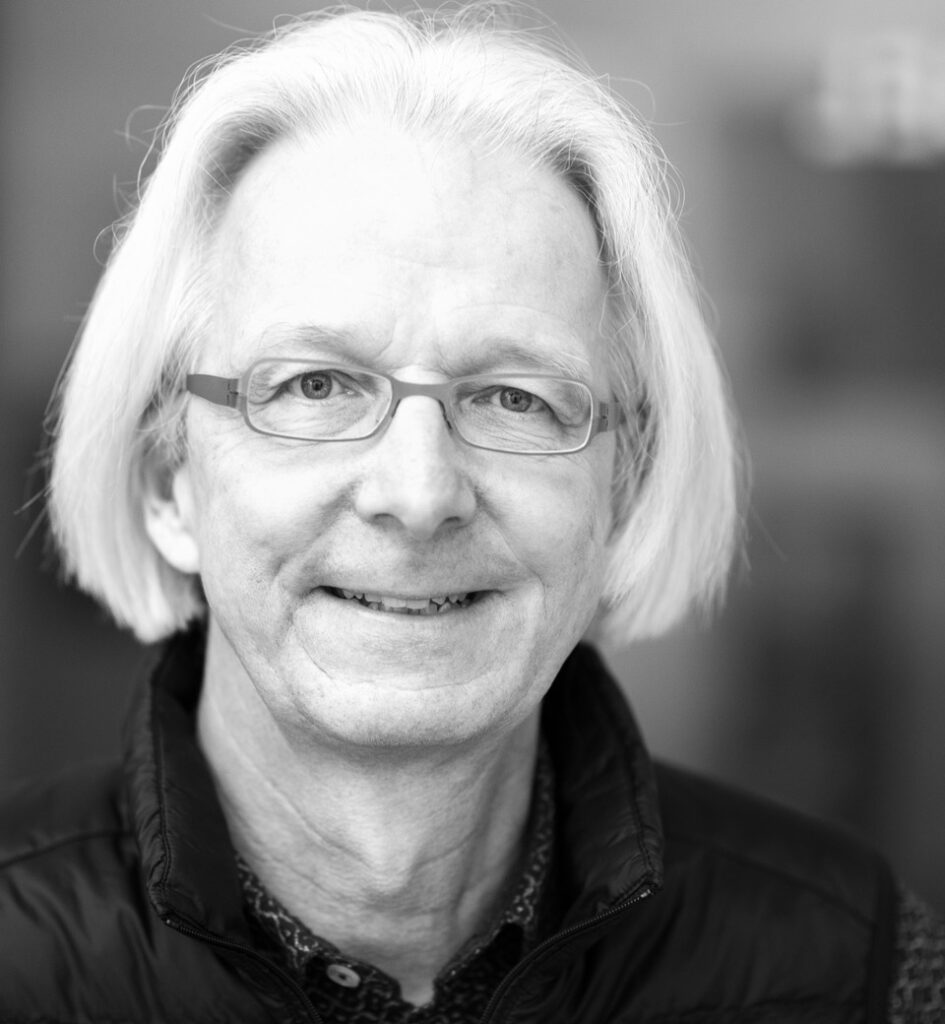
Christoph Draxler is the co-director of the Bayerisches Archiv für Sprachsignale at the Institute of Phonetics and Speech Processing at LMU Munich. He studied both computer science and Romance linguistics in Munich and received his PhD in computer science in Zurich. Back in Munich, he developed tools for working with spoken language, with a focus on web services, e.g. perception experiments and distributed online speech recording. His current research interests are the integration of AI into the workflow, and making available the BAS toos to research fields where spoken language is a central carrier of information – e.g. oral history, sociology, psychology.
Pixels and Processors: The Symbiosis of AI and Digital Art
Abstract: The intersection of artificial intelligence (AI) and digital art represents a transformative era in artistic expression and technological innovation. This keynote explores the evolving relationship between AI and digital art, highlighting how AI technologies are reshaping the creative landscape. We begin with a historical overview, tracing the evolution from early computer-generated imagery to contemporary AI-driven artworks. Artists like Eugen Demeterca exemplify this evolution by integrating traditional art forms with AI, creating pieces that push the boundaries of creativity and technology.
We delve into the mechanics of AI in art, explaining key technologies such as neural networks and Generative Adversarial Networks (GANs). These technologies enable artists to explore new creative processes, as seen in Demeterca’s work, which blends human ingenuity with machine learning. This section also includes practical examples and case studies, showcasing the capabilities and aesthetic potentials of AI-generated art.
The talk addresses critical ethical and philosophical questions, drawing on insights from thinkers like Ernst Gombrich and John Searle. Gombrich, a revered art historian, emphasized the importance of human intentionality and creativity in the artistic process. He might argue that AI, while capable of producing aesthetically pleasing and complex works, lacks the conscious intent that defines true artistry. Gombrich’s perspective urges us to consider the essential human elements of creativity that machines cannot replicate. In contrast, philosopher John Searle’s “Chinese Room” argument critically examines the nature of AI’s understanding. Searle contends that AI systems, despite their sophisticated outputs, do not possess genuine understanding or consciousness. This philosophical stance highlights the difference between human and machine cognition, framing our discussion on the role of the artist, authorship, and the implications of AI in art. By juxtaposing Gombrich’s emphasis on human creativity with Searle’s critique of AI’s cognitive capabilities, we explore a comprehensive ethical and philosophical landscape.
Sociological approaches further contextualize AI-driven art within broader societal structures, examining issues of access, inequality, and cultural production. For instance, Pierre Bourdieu’s theory of cultural capital can be applied to understand how access to AI technology and resources might reinforce existing social inequalities. Artists from underprivileged backgrounds may struggle to access the high-cost technology and education needed to work with AI, thereby limiting the diversity of voices and perspectives in AI-driven art. This analysis highlights the importance of ensuring equitable access to technological tools to foster a more inclusive digital art landscape.
The future of AI and digital art is explored through emerging trends, potential challenges, and opportunities for artists. We conclude with a call to action, encouraging artists and technologists to embrace the fusion of AI and creativity, inspired by pioneers like Demeterca.
This keynote aims to provide a comprehensive understanding of the symbiosis between AI and digital art, offering insights into the past, present, and future of this dynamic field.

Adela Fofiu is a sociologist, science fiction aficionada, cultural creative, and researcher in social sciences, among other roles. She is an exemplary public speaker, deep thinker, and visionary. She inquires, asks, studies, strives to understand, and diligently works to disseminate the answers she uncovers.
Adela is currently mandated to lead the CHS (Core Humanitarian Standard) self-verification process at Mercy Corps Global. This work is crucial as it ensures that humanitarian organizations adhere to the highest standards of quality and accountability, thereby improving the effectiveness and impact of aid delivery to those in need.
Adela has undertaken an extended journey to bridge the humanities and social sciences with the fields of technology and STEM. This journey has placed her in a key position as a woman and social scientist in AI and data analytics start-ups, following over a decade in the academic environment. She firmly believes that research and development, as well as innovation in information and communication technology, can greatly benefit from the refinement of humanistic and social critical thinking.
Adela has dedicated five years to the development of computational sociolinguistic models for high-level text analytics, drawing from more than 40,000 online news sources in English. Her primary project focused on emotion detection in a circumplex of affect.
Her doctoral research on discourse analysis, entitled “Apocalypse on the Net: Extreme Threat and the Majority-Minority Relationship on the Romanian Internet,” has been published by Peter Lang.
Adela has also instructed future journalists in social sciences and media research methods at the Journalism Department of the Faculty of Political, Administrative and Communication Sciences, Babes-Bolyai University. Additionally, she is responsible for the Digital Content Analysis/Computational Social Sciences courses at the annual summer school “Applied Social Research Methods” of the Political Science Department at the same Faculty.
She is a CENDARI Transnational Fellow, having collaborated with the Trinity Long Room Hub Arts and Humanities Research Institute at Trinity College Dublin. She has served as a visiting researcher and lecturer at the University of Manchester and Manchester Metropolitan University. Furthermore, she has contributed to the establishment of DigiHUBB, the Transylvania Center for Digital Humanities.
In her local community of Cluj, her home city, Adela has played an active role as a social innovator for more than nine years, working with the Cluj Cultural Center, Clujul Sustenabil, and other informal groups.
Low Tech Digital Humanities. A Case Study on Romanian Literature as Small Literature
Abstract: A variety of theoretical frameworks have been developed to understand the uneven development of literature in a global context. Whether known as minor, ultraminor, peripheral, third-wheel, third-world, or simply small literature, literary production within smaller language communities has been understood within these frameworks to be a relational process shaped by international forces. To date, however, there has been little empirical work to understand the concrete dynamics that shape the literary marketplaces of so-called small literatures. In this presentation, I propose to use the case study of the Romanian novel to test a series of hypotheses regarding the distinctive qualities of small literature using methods inspired from computational text analysis adapted to literature written in the Romanian language, which is considerably low-resourced compared to languages belonging to Western cultures. At the same time, the presentation will deal with the problem of lack of digitization in the country and the scarcity of computational tools that can be used with the Romanian language, as well as the resources (data and meta-data) that are available at the moment concerning the Romanian literary culture that can be used to tackle relevant theoretical questions surrounding the position of Romanian literature within the world-system.
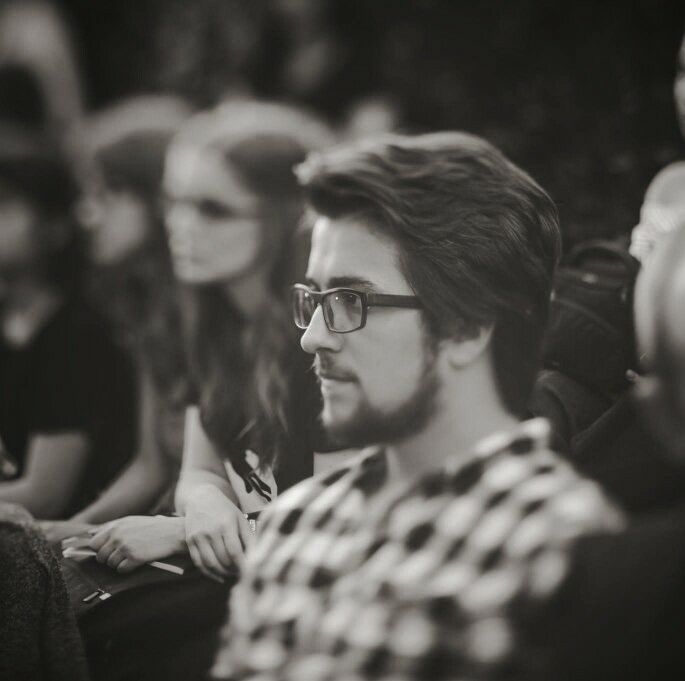
Emanuel Modoc is Assistant Professor at the Babeș-Bolyai University, Faculty of Letters. He obtained his PhD at the Department of Comparative and Universal Literature within the Faculty of Letters, Babeș-Bolyai University, Cluj-Napoca, with a thesis on the networks of East-Central European avant-gardes. He is an Assistant Editor for the “Metacritic Journal for Comparative Studies and Theory” and a Research Assistant at the “Sextil Pușcariu” Institute of Linguistics and Literary History”, part of the Cluj-Napoca Branch of the Romanian Academy. He authored the volume Internaționala periferiilor. Rețeaua avangardelor din Europa Centrală și de Est/ The International of Peripheries. Avant-Garde Networks of East-Central Europe (Muzeul Literaturii Române, 2020). He has been involved in Digital Humanities projects such as The Digital Museum of the Romanian Novel (MDRR), From Archive to Canon: A Distant Reading of the Romanian Novel (ARCAN), and the COST Action Distant Reading for European Literary History (CA16204).
DH and lesser-resourced languages: appropriation, imitation, localization of concepts, methods and tools
Abstract: Despite universalist claims, a global perspective on digital humanities (DH) should be regarded with cautiousness because the local contexts develop according to a different logic, involving various rhythms of theoretical exposure, methodological acclimatization, and individual appropriation. After sketching a brief history of the field and discussing a few key issues such as democratization of research, experimentalism, productive theory, computationality, digitality, etc., I evaluate what are the effects of novelty and the elements of familiarity that are mostly foregrounded in the process of localization, chiefly in the case of emergent DH academic communities and lesser-resourced/ lesser-used languages. Indicating not only a post-pandemic aspiration to modernize pen-and-paper public services, the recently-coined phrase “Digital Romania” as well as constellated projects, curricula programs, organizations, and other initiatives provide us with a pertinent case study that will be discussed as a localization instance.
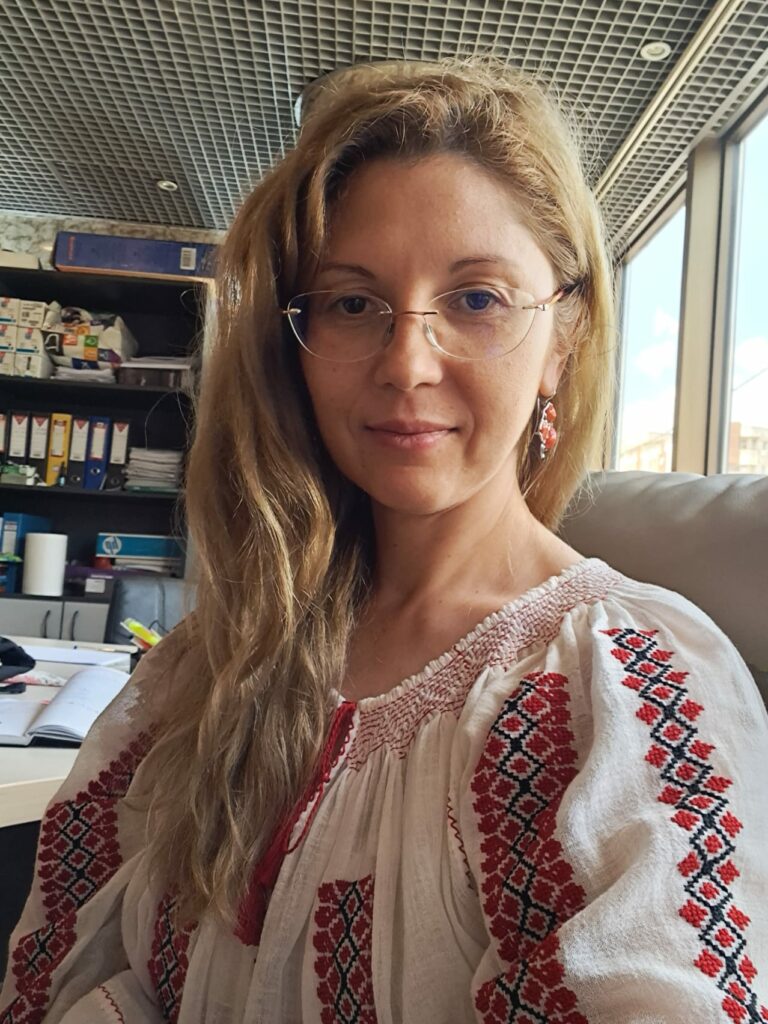
Roxana Patraș is a Senior Researcher I (Cercetător Științific I) at the Institute of Interdisciplinary Research, “Alexandru Ioan Cuza” University of Iași. She published 3 monographs (the latest, The Remains of the Day: literature and political eloquence in 19th-century Romania, 2018) and edited several scholarly editions (G. Ibrăileanu, Scrieri alese (2010); Oratorie politică românească (1847-1899), 3 vol. (2016), and C.D. Aricescu, Mysterele căsătoriei, 2020). She was a visiting scholar at Trier Center for Digital Humanities (2028, 2023), Antwerp Center for Digital Humanities and Literary Criticism (2019), Universite Sorbonne Nouvelle-LATTICE (2019, 2020, 2022). Member of Cost Action16204: Distant Reading for European Literary History (2017-2022) and PI of several national research grants HaiRo: Hajduk Novels in Romania during the long nineteenth century – digital edition and corpus analysis assisted by computational tools (2019-2021), PopLite: Romanian Popular Novels and Their Sub-genres during the Long Nineteenth Century: digital editing and corpus analysis(2022-2024), FONLIT (2024-2026). Roxana’s main areas of research are the history of 19th-century European literature, literary theory, genre fiction, rhetoric, memory studies, and computational literary studies.
